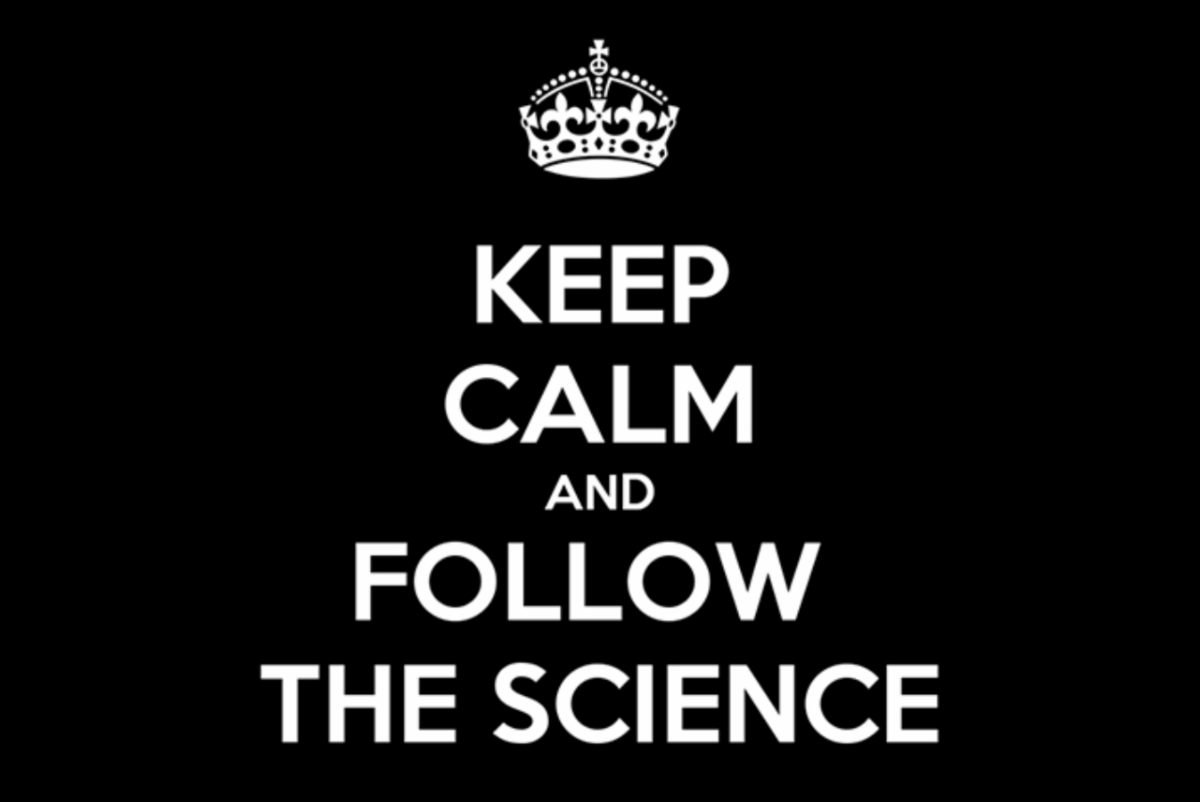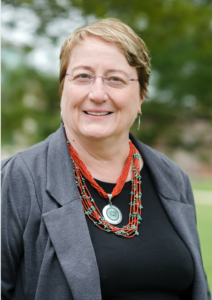

Joyce Shelton, Ph.D.
Professor of Biology, Trinity International University
Guest Column
In the climate of fear, uncertainty and urgency engendered by the COVID-19 pandemic, it is often difficult to know what to do or whom to trust. Public policy makers are daily making decisions and enacting rules that affect our lives and dictate our actions in the name of protection. They lend authority and justification to their decisions by claiming that they are following the science, implying that this appeal to a trusted, rational voice should be enough to calm our concerns and guarantee our compliance. But the elevation of science to the role of all knowing authority exceeds the purview of science. Rather it is more consistent with “scientism.” Scientism is not science, it is a philosophy that claims science alone can reveal absolute truth about the world and reality (1). In actuality, while a goal of science is to approach a true understanding of natural phenomena, its investigators claim no final nor enduring explanatory truth (2). Science is a process, one that utilizes systematic reasoning to arrive at an evidence-based understanding of how the natural world works.
Pursuing more and better evidence for claims through constant questioning achieves scientific progress. As new evidence is gained, the consensus of the scientific community evolves. Such change is accelerated by a crisis like the COVID-19 pandemic. Science, which often advances with slow and careful deliberation, has been put to the panic test and has responded with a rapidity never before seen, bringing to clinical trial both treatments and vaccines to the point of approval for use in less than a year’s time (generally a process that can take five to ten years). Randomized controlled trials following strict research protocols illustrate the methodological processes of science at their best. The community aspect of science is also apparent in the unprecedented collaboration and data sharing across the world in an effort to understand COVID-19. In the US National Library of Medicine, a database for published medical research, a search for mentions of COVID-19 in the last 12 months retrieves more than 90,000 results (3). Nevertheless, not all results have been definite or even meaningful. There have been as many fails, changed conclusions, and redirections as positive outcomes. Witness the about face on treatment with hydroxychloroquine (4), the frenzied decontamination of surfaces, later found not to be a major source of viral transmission (5), and concerns over AstraZeneca vaccine’s lack of efficacy against a coronavirus variant in South Africa (6). That is the nature of science.
Public policy makers and society in general are not comfortable with accepting scientific conclusions that fluctuate. Society wants unambiguous answers, especially in crisis situations. Governments are bound to deliver solutions and are unwilling to take all the blame for them if they go wrong. Thus, they resort to “scientism,” presenting scientific conclusions as concrete truths and giving undue precedence to scientific knowledge over knowledge derived from other disciplines or sources (7). As scientism perverts the role of science by extending its authority over policy decisions and societal actions beyond its scope, science becomes a vulnerable, convenient scapegoat for those who may choose to use it as a means to their own ends. In the face of the pandemic, the media and the policy makers have become the self-appointed interpreters of science to the worried public. Their mantra, to follow the science and only the science, is a readily acceptable strategy to an intimidated, uninformed, and deeply fearful public that is hungry for definitive direction under threat of illness or perhaps death.
Ultimately, scientism weakens the credibility of science. Government officials who lack an understanding of the true nature of science, follow the science at their peril because it will inevitably take them down a winding path. The British government, for example, which claims to follow the science, has bewildered its citizens by a multitude of shifts in policy. Note the article in a recent issue of The Guardian entitled “English COVID rules have changed 64 times since March, says barrister” (8). The public becomes fed up with trying to keep up, which leads to cynical mistrust. Recognizing and confronting scientism is a critical first step toward restoring public confidence.
The COVID-19 pandemic is not over. If the general public desires a more thoughtful approach by government officials, perhaps we need to champion a more balanced strategy for decision making. A place to start might be the issue of re-opening K-12 schools. “In the spring of 2020, all public kindergarten to grade 12 (K-12) schools in the United States closed for in-person instruction” (9), a federally mandated action, based on advice of scientists, to reduce SARS-CoV-2 transmission. The stress of remote learning at home on children, working parents, and communities resulted, almost immediately, in pressure on government officials to reopen schools (10). In the face of demands, public officials once again appealed to clear scientific evidence that children are not as affected by COVID-19 and declared that schools could safely reopen (11,12,13). In reality the scientific evidence is not at all clear. Although less than 10% of COVID-19 cases in the United States have been among children, they can be infected by and transmit SARS-CoV-2 (14). School sponsored sports and activities have been shown to increase the risk of SARS-CoV-2 transmission. High community rates of COVID-19 also increase the likelihood of SARS-CoV-2 outbreaks in school settings (15). At the very least, educators (who have not been prioritized to receive vaccines in most states), their families, school staff, and relatives of students are at risk and have the right to be concerned about reopening. Recently, in Chicago, IL, the city government officials attempted to force the opening of public schools against the concerns of teachers. This action led to a teacher strike that did not have to happen. (16) Rather than governments dictating or demanding that schools follow the science and reopen, this situation is a chance for scientists, health care workers, educators, psychologists, community members, parents, and policy makers to dialog toward the best solution for all concerned. It represents a prime opportunity for the appeal to the authority of science to be decentralized and re-balanced with the wisdom that comes from rational discourse among thoughtful individuals from many areas of expertise—the antidote to scientism.
The Tennessee Center for Bioethics & Culture encourages respectful discussion and debate of bioethics issues, and strongly supports freedom of speech. To that end, we invite and welcome other voices to the discussion of bioethics issues. Invited authors’ views are their own, and do not necessarily represent those of The Tennessee Center for Bioethics & Culture.
References
1. http://www.pbs.org/faithandreason/gengloss/sciism-body.html; accessed Jan 19, 2013
2. “The Nature of Science,” in Panel on Scientific Responsibility and the Conduct of Research, National Academy of Sciences, National Academy of Engineering, Institute of Medicine. Responsible Science, Volume I: Ensuring the Integrity of the Research Process. Washington, DC: The National Academies Press, 1992
3. National Library of Medicine https://www.nlm.nih.gov/
4. https://www.nih.gov/news-events/news-releases/hydroxychloroquine-does-not-benefit-adults-hospitalized-covid-19
5. https://www.thelancet.com/journals/laninf/article/PIIS1473-3099(20)30561-2/fulltext
6. https://www.sciencemag.org/news/2021/02/south-africa-suspends-use-astrazenecas-covid-19-vaccine-after-it-fails-clearly-stop
7. https://www.aaas.org/programs/dialogue-science-ethics-and-religion/what-scientism
8. https://www.theguardian.com/world/2021/jan/12/england-covid-lockdown-rules-have-changed-64-times-says-barrister
9. https://www.cdc.gov/coronavirus/2019-ncov/more/science-and-research/transmission_k_12_schools.html
10. https://www.pbs.org/newshour/education/pressure-builds-on-schools-to-reopen-during-pandemic
11. https://abcnews.go.com/Politics/trump-insists-schools-open-fall-local-authorities-hold/story?id=71648610
12. https://www.nytimes.com/2021/01/25/us/biden-schools-reopen-coronavirus.html
13. https://www.politico.com/news/2021/02/13/biden-covid-schools-468979
14. https://covid.cdc.gov/covid-data-tracker/#cases_casesper100klast7days
15. https://www.cdc.gov/coronavirus/2019-ncov/more/science-and-research/transmission_k_12_schools.html
16. https://chicago.suntimes.com/education/2021/2/4/22266350/chicago-public-schools-reopening-mayor-run-out-patience-ctu-wants-deal


